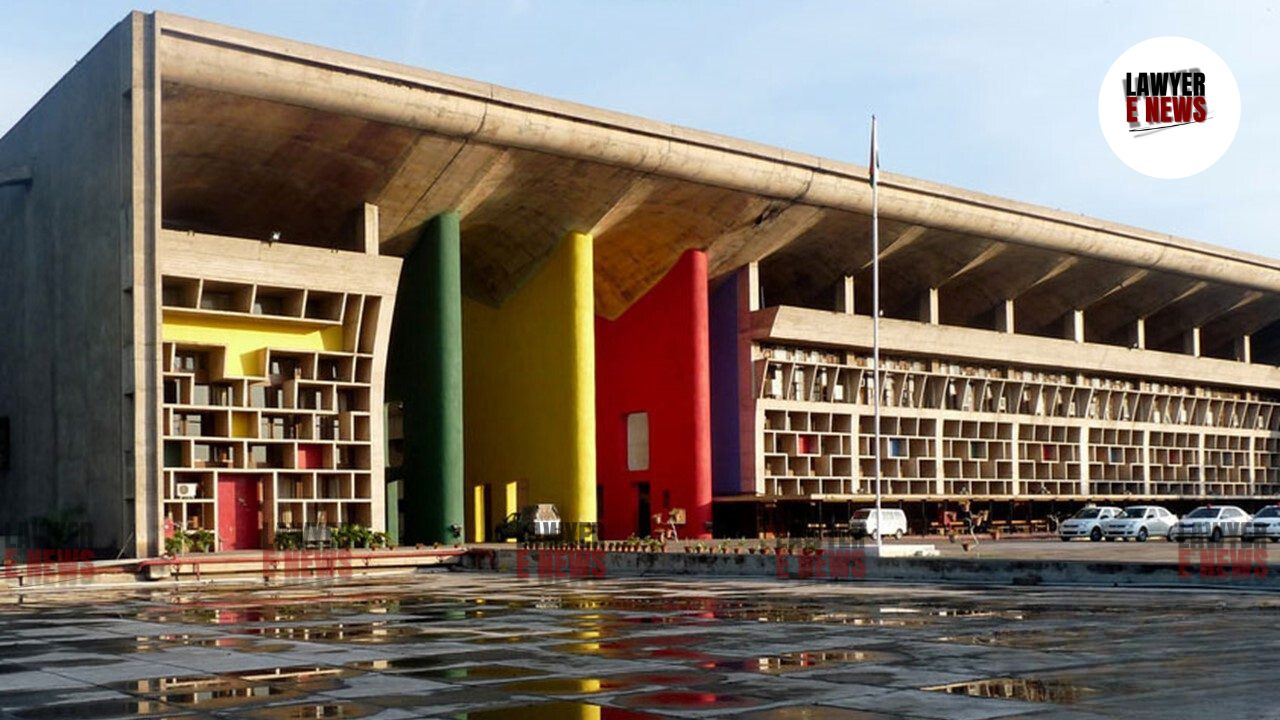-
by Admin
15 February 2026 5:35 AM



Punjab and Haryana High Court, presided by Justice Deepak Gupta, dismissed a civil revision petition in Uday Srikant Ghatge & Others v. Rajinder Sharma. The petition challenged the dismissal of an application for condonation of a 1050-day delay in filing an appeal against an ex-parte decree. The Court upheld the decision of the First Appellate Court, holding that the petitioners failed to provide a sufficient cause for the inordinate delay, and reiterated the need for strict application of limitation laws.
The case revolves around a financial dispute in which the respondent, Rajinder Sharma, filed a summary suit for recovery of ₹1.13 crore paid to the petitioners for securing a medical seat for his son under the management quota. When the petitioners failed to appear, an ex-parte decree was passed on April 3, 2015. Subsequently, the petitioners filed an application under Order 9 Rule 13 CPC to set aside the ex-parte decree, but it was dismissed by the Trial Court on April 17, 2017. No appeal was filed against this dismissal, allowing the order to attain finality.
The petitioners later filed a regular appeal under Section 96(2) of the CPC, seeking to challenge the ex-parte decree, but this appeal was filed with a delay of 1050 days. The First Appellate Court dismissed the application for condonation of delay, which led to the dismissal of the appeal as barred by limitation. Aggrieved, the petitioners filed a revision petition before the High Court.
The key issue before the High Court was whether the petitioners had shown sufficient cause to justify condoning the 1050-day delay in filing the appeal. The petitioners argued that personal hardships, including medical emergencies, attending criminal proceedings, and the long distance from their residence in Kolhapur to the trial court in Gurugram, had contributed to the delay.
The petitioners also contended that they had not been served summons after the suit was converted from a summary suit under Order 37 to a regular suit, which justified their absence and the resulting delay. However, the record showed that summons had been duly served through registered post and publication.
The respondent argued that the petitioners were well aware of the suit proceedings but chose not to participate, citing evidence that they referred to the pending suit in other legal proceedings.
Justice Deepak Gupta, in his judgment, upheld the decision of the First Appellate Court, holding that the petitioners had failed to provide a sufficient cause to justify the delay. The Court noted that even after deducting the time spent pursuing remedies under Order 9 Rule 13 and Section 151 CPC, the petitioners were still delayed by approximately 650 days in filing the appeal. The Court found that the petitioners had knowledge of the suit, as evidenced by their reference to it in criminal proceedings in Pune.
"In the aforesaid circumstances, it does not lie in the mouth of the petitioners to plead that they were not aware about the pendency of the suit or that they came to know about the passing of the judgment and decree only after getting the summons in the execution." [Para 16]
The Court further emphasized the importance of adhering to limitation laws:
"Law of limitation finds its root in two Latin maxims, one of which is vigilantibus et non dormientibus jura subveniunt, which means that the law will assist only those who are vigilant about their rights and not those who sleep over them." [Para 21]
Citing precedents such as Basawaraj v. Special Land Acquisition Officer and Sagufa Ahmed v. Upper Assam Polywood Products Pvt. Ltd., the Court reiterated that negligence, inaction, or lack of bona fides cannot justify condonation of delay, especially in cases involving such a significant period.
The Punjab and Haryana High Court dismissed the revision petition, holding that the petitioners had failed to demonstrate sufficient cause for the 1050-day delay in filing the appeal. The Court upheld the First Appellate Court’s decision to dismiss the appeal on the ground of limitation, reinforcing the principle that limitation laws must be applied strictly, and parties seeking relief must act diligently.
Date of Decision: September 12, 2024
